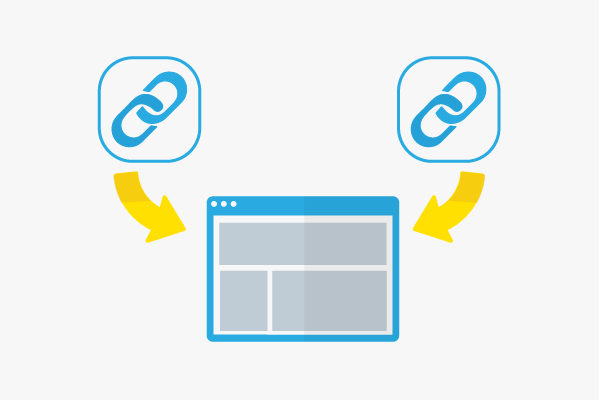Link Building
Link building is the procurement of inbound external links, also called backlinks. Link building is an off-page SEO measure.
Background
Since the launch of Google, websites no longer have to register with search engines because of Google’s new algorithm that reviews websites based on their inbound external links. This gave SEOs the opportunity to positively influence the ranking of their websites by collecting external inbound links. Previous tests have partly shown that a more rapid rise in ranking is possible through link building. Thus, a new search engine optimization branch emerged which mainly focused on the procurement of external links. The dark side of link building came along with it, however. Dubious link building methods such as automated setting of backlinks, link rings, link buying and selling were also used more extensively.
What does link building means today
Google’s ranking algorithm is constantly improved and developed. Nowadays link spam is often detected within a short period of time. Search engine providers point out that backlinks continue to be an important factor in search engine rankings. Google’s webmaster guidelines explicitly prohibit active link building, as it can be interpreted as an attempt at manipulation. However, according to Google, getting recommendations in the form of links should be the goal of webmasters.
Since the major algorithm change, specifically the Penguin update in 2012, many websites were penalized if they had poor quality backlinks, automated or paid links. Therefore, many websites were penalized by a drop in rankings or were removed from the Google index entirely. This update proved the importance of good backlinks once again. Google now has a link disavow tool to verify the links to your website in Webmaster Central.
Options
There is a large number of options to get links from other websites to your own. The most common link building methods are presented below:
- Do nothing. Good content gets link by users
According to Google, this is the best way to generate links. Web page content should have added value so that users recommend the information in the form of backlinks to their own pages.
- Entries in web directories and article directories
This was previously a free and simple manual, semi-automated or automated method of links generation. Nowadays however, this method has become useless, since the Google search engine recognizes backlinks from web and article directories and they are generally ignored.
- Entries in relevant forums
Backlinks used to be generated by setting up a forum signature, where you had the option to leave a web address. By posting in a forum you created a backlink to your own website. This type of backlink generation is known to Google as well and is now largely ignored.
- Blog comments
Many blog systems allow you to refer to a webpage in the comments section. When posting a blog comment, a cross reference to the website of the commentator is generated. This method has been widely used as a spam technique by generating automated blog comments or manual comments that were of no real benefit.
- Link exchange
A very popular free method that can work, if well thought through. Two websites mutually exchange links in which the exchange is coordinated. The advantage is seeking out explicit sites where a link can be published and you can determine the position of the links in the text or specify link text. In many cases, this method is detected by Google as well, especially with reciprocal linking of pages.
- Link buying
Many website owners have made it a business to sell link building as a service. This method is absolutely frowned upon by Google. Google warns that it will exclude link buyers and sellers from the search engine index.
Content marketing instead of link building
Because of Google’s algorithm improvements and the rapid detection of link manipulation, it has become a difficult task to obtain high-quality cross-references from other websites. Therefore, the trend is towards the creation and marketing of webpage content, so-called content marketing. The aim is to offer added value by presenting interesting information and content that will also result in a lot of links and mentions. If website content represents a real benefit for users, it will also be highly rated by search engines and better positioned in the rankings.
Web Links
- Google Webmaster Central - Quality Links to your site
- 79 Link Building Resources for 2012
- Matt Cutts Video - What is Google's thinking about links from article marketing, widgets, etc.?

